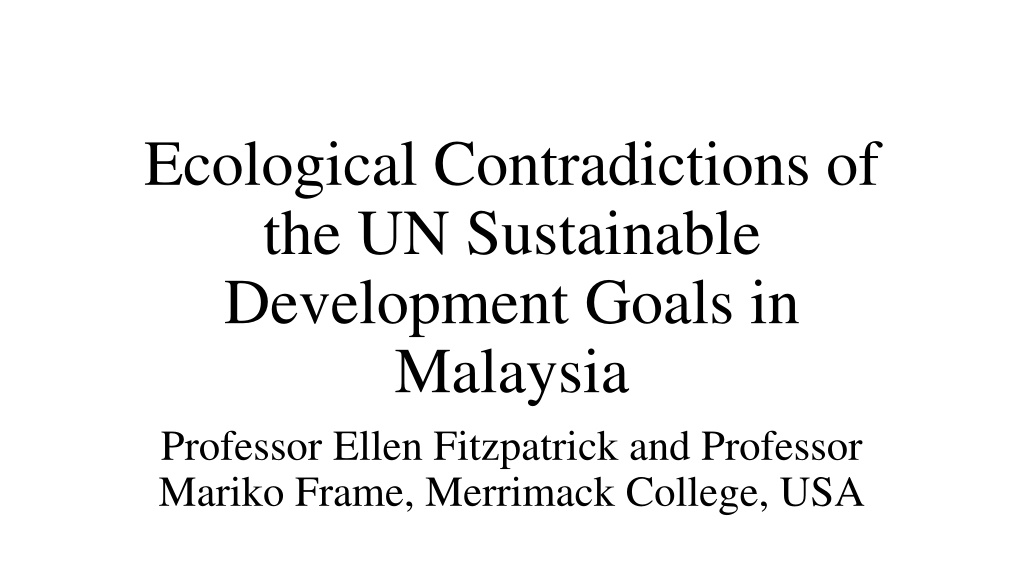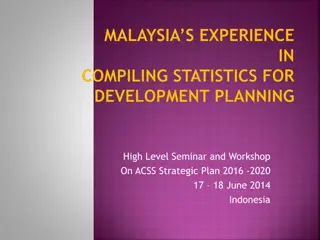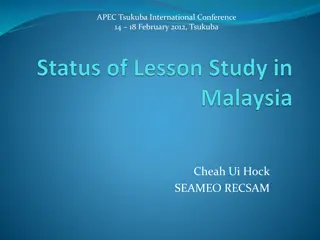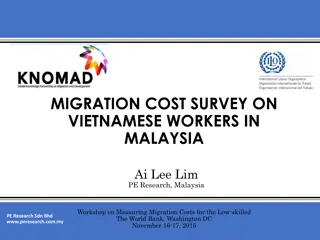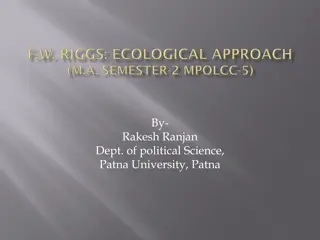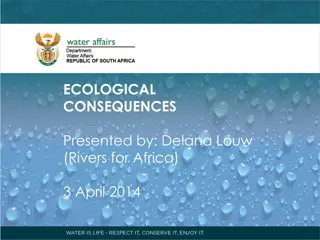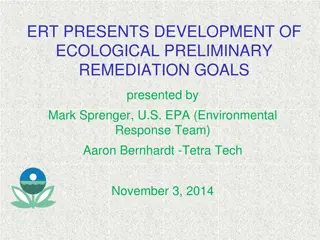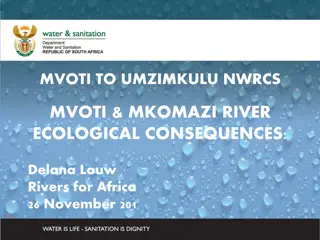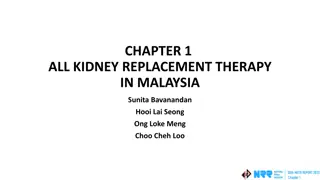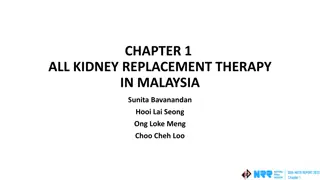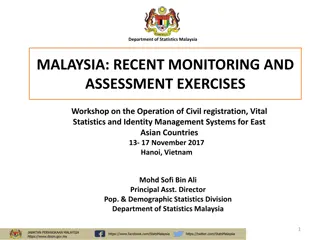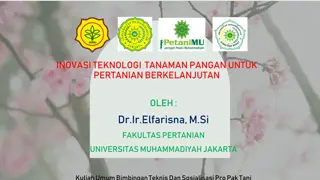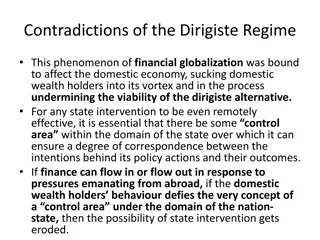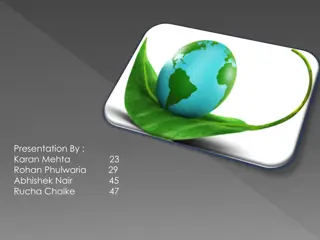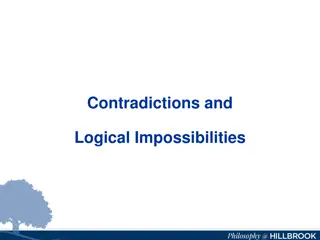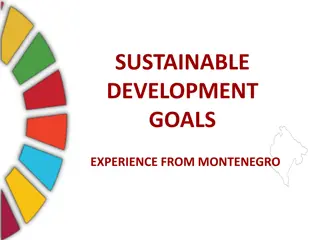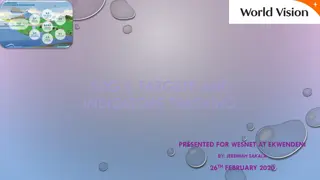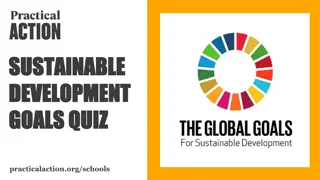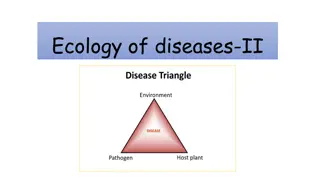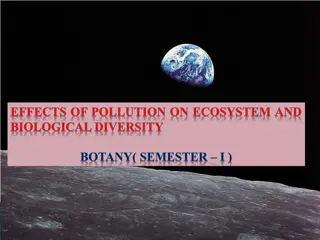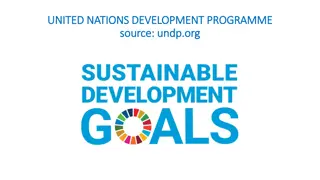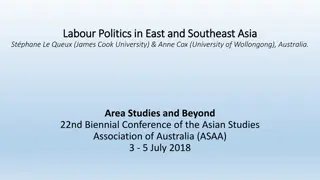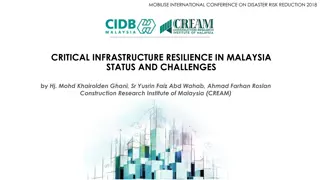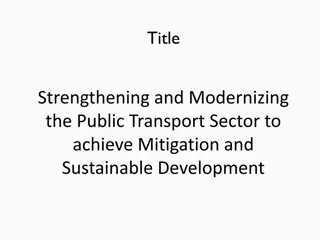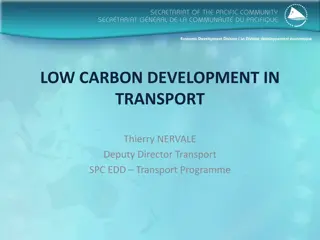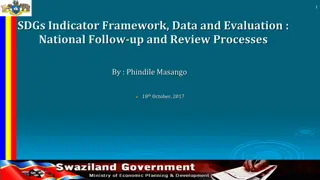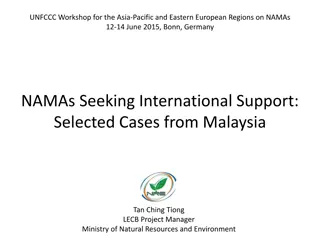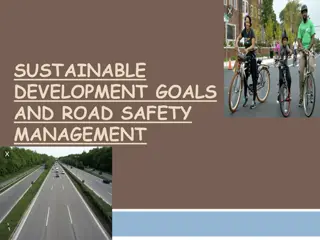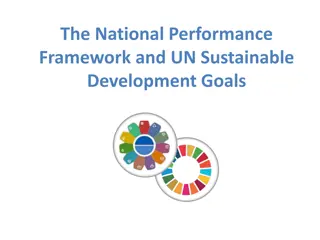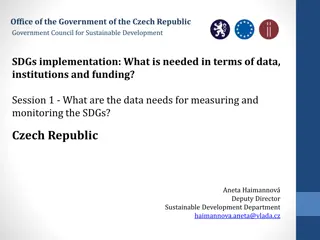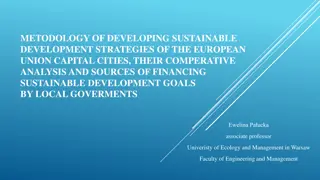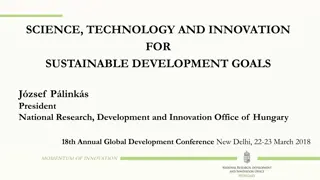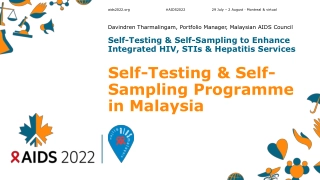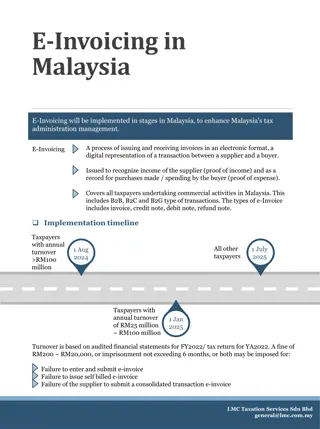Ecological Contradictions of UN Sustainable Development Goals in Malaysia
This study conducted by Professors Ellen Fitzpatrick and Mariko Frame from Merrimack College, USA, examines the potential conflicts between economic objectives and environmental sustainability goals within the UN Sustainable Development Goals framework, using Malaysia as a case study. It delves into the challenges posed by economic growth, industrialization, and trade on environmental sustainability, highlighting issues such as decoupling, unequal ecological exchange through trade, and unsustainable resource use in industrial societies.
- Sustainable Development Goals
- Malaysia
- Environmental Sustainability
- Economic Growth
- Industrialization
Download Presentation

Please find below an Image/Link to download the presentation.
The content on the website is provided AS IS for your information and personal use only. It may not be sold, licensed, or shared on other websites without obtaining consent from the author. Download presentation by click this link. If you encounter any issues during the download, it is possible that the publisher has removed the file from their server.
E N D
Presentation Transcript
Ecological Contradictions of the UN Sustainable Development Goals in Malaysia Professor Ellen Fitzpatrick and Professor Mariko Frame, Merrimack College, USA
UN Sustainable Development Goals: Are They Really Sustainable? We explore, using the case study of Malaysia, whether or not pursuing the economic objectives of SDGs will contradict the environmental SDGs
Economic Goals that Contradict Environmental Sustainability Goals Goal 8 which calls for continued and substantial economic growth Goal 9 which calls for expansion of industrialization Goal 17, increasing international trade through increased exports, increasing foreign investment, and further development of finance sector
Why are Growth, Industrialization and Trade Ecologically Problematic? 1. Global economic growth dependent on decoupling -Critical environmental thresholds like climate change and biodiversity loss necessitate absolute decoupling, not relative decoupling -No evidence of sustained and significant decoupling 1. Shifting of environmental burdens through trade, ecologically unequal exchange 1. Foreign investment driving ecological problems in Global South 1. Industrial societies require unsustainable level of resource use
Why Malaysia? Considered a successful emerging economy Two-pronged approach to economic development Reduction on poverty and equity among ethnic groups Economic growth (GNP/capita)
Methodology Aggregate resource use of Malaysia s economic growth, industrialization, and trade Economy-Wide Material Flows Analysis (EW-MFA) Sectoral impacts of economic growth and industrialization on climate change, life below water, and life on land. Policy scoring of the interactions between economic activities and environmental impacts. Secondary data and key contextual variables Scale +3 to -3 +3 achievement of one goal closely linked to another -3 canceling effect increased use of fossil fuel, encumbers progress in climate change.
Results: Material Flows 1. Malaysia s growth came with high resource use = high resource cost of economic growth 2. Disappointing material productivity = Malaysia s development not decoupling. 3. Malaysia increasingly outsourcing resource needs through international trade
Results: Sectoral Policy Scoring Out of 21 interactions between major areas of growth (energy, construction and manufacturing, agricultural and aquaculture) and the environmental SDGs, only two areas of growth (solar and hydropower) likely to have positive, reinforcing interactions, and only with SDG 13 (climate). All other interactions likely either neutral (4 interactions) or even negative/canceling (15 interactions).
Example: SDG 14 Life Below Water Growth Area Industry Relationship Energy Fossil Fuels -3 Cancelling. Ocean acidification represents an existential threat to all shell building marine organisms. Solar Power 0 Consistent. No impacts identified. Hydro Power -1 Constraining. Disruption of rivers can negatively impact estuaries and reduce sediment export. Agriculture Palm Oil -1 Constraining. Erosion and fertilizer inputs from high intensity agriculture can negatively impact nearshore marine ecosystems. -2 Aquaculture Counteracting. Marine aquaculture leads to loss of important mangrove nursery habitat and nutrient pollution. Construction Cement 0 Consistent. No impacts identified. Sand -1 Constraining.
Overall Results Malaysia s economic growth, industrialization, and international trade has exacted unsustainable resource use to-date. Given Malaysia s growth trajectory, significant environmental sacrifices will be made in the future, demonstrating inherent contradictions between the economic and environmental SDGs when real-world cases are closely examined.
Economic SDGs emphasize the same resource-intensive, export-led growth in the Global South emphasized by neoliberal development policies that has led to current global ecological crises
Discussion Environmental goals on equal footing with economic goals - Environmental goals not precise, comprehensive, and verifiable - Need for greater restorative environmental policies - quantifiable environmental goals/objectives Environmental and economic goals should reflect precautionary principle, incorporate tipping points, positive feedback loops
Discussion Environmental goals designed to be holistic, capture systemic losses Ecological economics: optimal scale of national and global economy - SDGs don t take this into account Dramatically increased ESG regulation of financial sector
Discussion How much should international trade be force for growth? - environmentally sustainable supply chains - avoid beggar thy neighbor trade policies Economic indicators too broad, not sufficiently pro-poor/pro-green specific Environmental indicators insufficient benchmarks for environmental conditions
Discussion Importance of degrowth in developed countries as part of solution Areas for further research: - More detailed case studies that take into account concrete circumstances and path dependencies - synergies and trade-offs between economic and environmental goals - critical re-evaluation of SDG goals with emphasis on clear, quantitative targets esp for environmental SDGs
